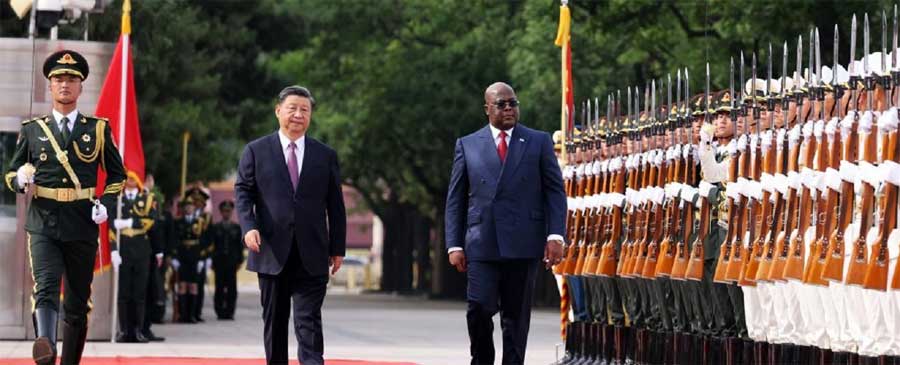The Pakistan Army Act (PAA), 1952, and the Official Secrets Act (1923) will be used in the trials of the 16 people arrested in connection with the May 9 riots, the administrative judge of Anti-Terrorism Courts in Lahore ruled on Thursday. The order was issued at the request of a military commanding officer who claimed that preliminary evidence indicated that the accused had committed multiple violations under the OSA.
This comes after top military brass had recently declared their “firm resolve” to ensure that anyone responsible for “heinous crimes against military installations and personnel/equipment,” including civilians, will be “brought to justice through trial under relevant laws,” such as the PAA and the OSA. This choice was supported by the government as well.
Under the guise of “accountability” and the “rule of law,” allowing military courts to punish civilians for their alleged involvement in the May 9 riots is a blatant attack on fundamental liberties and democracy. This includes certain members and supporters of the PTI. Civilians accused of 1) “Seducing or attempting to seduce any person subject to this Act from his duty or allegiance to government” or 2) “having committed an offence under the OSA… in relation to the… military of Pakistan” may be tried by military courts (courts martial) under Section 2 of the PAA.
Offences covered by the OSA include espionage, photographing “prohibited” locations without permission, “harbouring spies,” and aiding and abetting espionage. The death sentence is an option for certain offences under this system. Therefore, government and military claims that allegations of civilians “attacking military installations” are sufficient for military tribunals under the Army Act or the OSA are deceptive and not supported by law.
Crucial element in the conduct of a trial that is fair.
In addition, it is not entirely obvious how violations of the OSA can be established as a matter of prima facie against individuals whose transfer of custody to the military has been authorised.
More importantly, even if the authorities frame charges against the accused under the OSA in order to bring their cases within the ambit of the Army Act, such trials would be in blatant violation of Article 10A of the Constitution, which guarantees a fair trial, as well as Pakistan’s human rights obligations under international law. This is because such trials would be held in violation of Pakistan’s human rights obligations under international law.
Due to a variety of factors, the processes before Pakistan’s military tribunals do not meet the national and international fair trial requirements, and the courts themselves are not independent.
To begin, judges in military courts are often senior military officers who are part of the executive branch but do not have the same level of autonomy as other ranks in the military. They are not obliged to have any sort of judicial or legal training, and they do not enjoy any sort of security of tenure, all of which are necessary for judicial competence and independence.
Second, military courts are not compelled to undertake open proceedings and do not provide elaborative or rational justifications for their decisions. A written decision that is properly reasoned and presented is a necessary component of a fair trial. Even in situations in which members of the general public are barred from attending the trial, the important conclusions, evidence, and legal reasoning must nevertheless be made public. The only exception to this rule is circumstances in which it is necessary to safeguard the parties’ right to personal privacy.
Third, the PAA prevents civilian courts from exercising their appeal power over the verdicts and sentences handed out by military tribunals. The courts have decided that they have the right to exercise their extraordinary writ jurisdiction to hear issues relating to military tribunals in situations in which “any action or order of any authority relating to the Armed Forces of Pakistan is… either coram non judice, mala fide, or without jurisdiction.”
In spite of assertions made by the administration, the legal framework of Pakistan places significant constraints on the scope of such reviews. Even the courts have adopted a restricted interpretation of the scope of their review jurisdiction. The Supreme Court concluded that the circumstances in which people were detained, even if they were forcibly disappeared and kept in secret confinement for years, was not relevant to its review jurisdiction in the context of petitions for review brought by family members of civilians who had been convicted by military courts.
The petitions were filed by family members of civilians who had been convicted by military tribunals. Similar to this, the Peshawar High Court came to the conclusion in another case that the manner in which “confessions made by the accused, under the ordinary criminal jurisprudence would seriously diminish the evidentiary value.” However, due to the limited scope available to the high courts, they were unable to interfere in the convictions that had been handed down by military courts on the basis of this evidence.
The military trials of civilians in Pakistan have been met with grave concern from the human rights bodies of the United Nations. The United Nations Committee against Torture issued a statement of concern over military prosecutions of civilians in May of 2017. The statement cited “the lack of independence of military court judges, which are within the military hierarchy, and practises of such courts including holding closed trials” as reasons for the worry.
In July of 2017, the United Nations Human Rights Committee also recommended that Pakistan “review the legislation relating to the military courts with a view to abrogating their jurisdiction over civilians and their authority to impose the death penalty” as well as “reform military courts to bring their proceedings into full conformity with Articles 14 and 15 of the covenants in order to ensure a fair trial.”
The story of notable human rights activist Idrees Khattak, who was kidnapped in November 2019 and later found to have been the victim of a gross miscarriage of justice committed by military courts, is a prime example. It was not known where he was until June of 2020, when the military authorities informed the Commission of Inquiry on Enforced Disappearances that he was being tried by a military court under the provisions of the PAA and OSA. His location remained unknown until that time.
It was announced in the media on December 2, 2021 that Idrees Khattak had been convicted and sentenced to 14 years of imprisonment under the PAA and OSA for charges relating to spying. The laws in question were the PAA and OSA. The verdict rendered against him by the military court has not been disclosed to the general public. The High Court in Peshawar has decided not to get involved in the case.
The people of Pakistan and the victims of the riots on May 9 have a right to the truth and justice in relation to the looting and destruction of public and private property, but this right cannot be exercised unless the perpetrators of the violence are brought to justice via open and honest proceedings. There should be no doubt that opaque, secret, and unfair military tribunals of certain accused individuals may be used to exact retribution; yet, there should also be no doubt that these types of trials have very little to do with maintaining accountability or the rule of law.
Justice, not revenge




